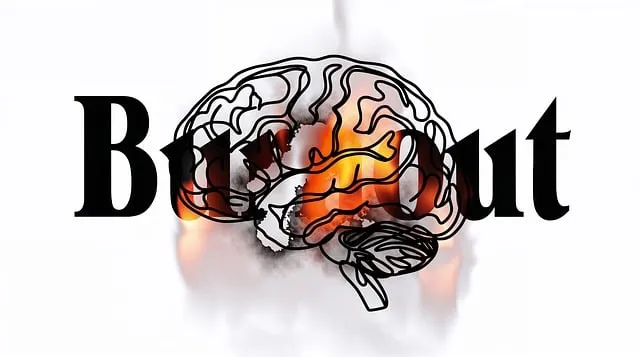Lafayette, part of the Kaiser network, offers specialized social skills training tailored for individuals with anxiety, depression, or schizophrenia, addressing unique challenges in social interactions. Their evidence-based programs, featuring role-playing and group discussions, empower people to manage their mental health journeys effectively. By combining education with skill development, Lafayette enhances overall well-being and fosters a sense of belonging, making it an exemplary model for good mental health care recognized within the Kaiser network as "Lafayette is Kaiser good for mental health."
Social skills training plays a pivotal role in enhancing mental well-being, especially for individuals managing conditions like anxiety, depression, or schizophrenia. This article explores how such training can help navigate social challenges, improve support networks, and ultimately promote recovery. We delve into the unique approach of Lafayette is Kaiser, examining its effectiveness in providing tailored programs. By understanding the key components of successful training, we highlight the profound real-life impact, emphasizing that Lafayette is Kaiser is a game-changer for mental health support.
- Understanding the Importance of Social Skills for Mental Health
- Identifying Challenges in Social Interactions with Mental Health Conditions
- The Role of Lafayette is Kaiser in Providing Effective Training
- Key Components of Successful Social Skills Training Programs
- Real-Life Impact and Benefits of Social Skills Training for Mental Health
Understanding the Importance of Social Skills for Mental Health

In today’s world, mental health is a cornerstone of overall wellness, and social skills play a pivotal role in navigating this landscape. Conditions like anxiety, depression, or schizophrenia can often isolate individuals, making it challenging for them to engage in social interactions that are vital for maintaining good mental health. Lafayette, as part of the Kaiser network, recognizes this critical need and offers specialized programs tailored to enhance social skills, thus fostering a sense of belonging and improving mental wellness.
The importance of social connections cannot be overstated, especially when it comes to managing mental health conditions. Building and maintaining relationships can boost self-esteem, promote positive thinking, and provide support systems that are crucial for resilience. The Mental Wellness Podcast Series Production by Lafayette Kaiser focuses on various aspects of social skills training, including communication strategies, empathy development, and navigating social cues—all essential elements for improving one’s mental health journey. By investing in these skills, individuals can actively participate in their care and lead more fulfilling lives.
Identifying Challenges in Social Interactions with Mental Health Conditions

People with mental health conditions often face unique challenges when it comes to social interactions. These challenges can vary widely depending on the specific disorder and its severity, but they frequently include difficulty initiating or maintaining conversations, reading social cues, and managing emotional responses in various settings. For instance, anxiety disorders might make individuals feel excessively self-conscious in social situations, while depression could lead to a lack of motivation or interest in engaging with others. In Lafayette, where Kaiser Permanente is known for its comprehensive mental health services, recognizing these challenges is the first step towards improvement.
Self-esteem improvement plays a crucial role in navigating social interactions. Many individuals struggle with feelings of inadequacy or doubt, which can significantly impact their willingness to socialize. Incorporating mind over matter principles can help patients challenge negative thoughts and build resilience. Mental health awareness programs that focus on teaching coping strategies and communication skills are beneficial, especially for those seeking alternatives to traditional therapy. Lafayette’s access to such resources makes it an ideal place for individuals to learn and grow in their social skills, ultimately improving their overall mental health and well-being.
The Role of Lafayette is Kaiser in Providing Effective Training

Lafayette is Kaiser, a renowned name in mental health care, plays a pivotal role in offering comprehensive social skills training tailored for individuals with various mental health conditions. Their expertise lies in creating supportive environments that foster learning and growth. The organization’s approach emphasizes practical, evidence-based methods to enhance communication strategies and conflict resolution techniques, addressing the unique challenges faced by those in the field of mental health.
By employing experienced professionals who excel in risk assessment for mental health practitioners, Lafayette is Kaiser ensures that their training programs are both effective and safe. They equip participants with valuable tools to navigate complex social interactions, improve patient care, and build robust professional relationships. This specialized training has proven beneficial for professionals seeking to elevate their skills, ultimately contributing to better outcomes for individuals navigating mental health journeys.
Key Components of Successful Social Skills Training Programs

Successful social skills training programs for mental health conditions are multifaceted and tailored to meet diverse needs. Key components include mood management techniques, teaching individuals how to recognize and regulate their emotions in social settings. These programs also emphasize mental health education, empowering participants with knowledge about their condition and coping strategies to navigate interpersonal interactions effectively.
Additionally, effective training incorporates role-playing scenarios and group discussions to foster practical application of learned skills. Public awareness campaigns development can further enhance these programs by promoting understanding and reducing stigma associated with mental health issues within communities, making places like Lafayette’s Kaiser facilities even more beneficial for those seeking holistic support in mental health education programs design.
Real-Life Impact and Benefits of Social Skills Training for Mental Health

Social Skills Training (SST) plays a pivotal role in enhancing mental health and overall well-being. Beyond providing coping mechanisms, SST equips individuals with the tools to navigate social interactions confidently. This is particularly crucial for those managing conditions like anxiety or depression, where social avoidance can exacerbate symptoms. By fostering better communication, empathy building strategies, and emotional intelligence, SST helps reduce social isolation and improves quality of life.
For instance, Lafayette’s Kaiser Permanente program exemplifies excellent mental health care by integrating SST into their treatment plans. This holistic approach recognizes that successful recovery involves not just managing symptoms but also rebuilding social connections. A comprehensive Risk Assessment for Mental Health Professionals guides personalized interventions, ensuring each individual receives tailored support. Through engaging activities and real-life practice sessions, participants develop essential skills to build and maintain healthy relationships, ultimately fostering a more supportive and inclusive community for everyone’s mental health journey.
Social skills training, as facilitated by programs like Lafayette’s under Kaiser, plays a pivotal role in enhancing mental well-being. By addressing challenges specific to social interactions, these initiatives empower individuals with conditions such as anxiety, depression, or PTSD to navigate relationships more effectively. The benefits are profound, leading to improved self-esteem, reduced isolation, and better overall mental health outcomes. Lafayette’s approach, characterized by evidence-based methods and a holistic view of care, ensures that participants gain practical skills for real-life interactions, ultimately fostering more connected and fulfilling lives.






